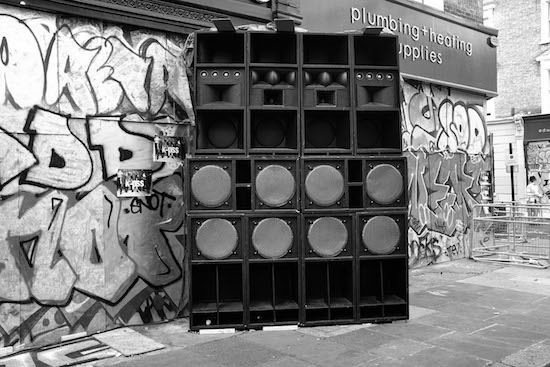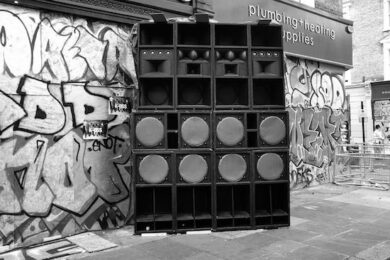All photographs, bar author portraits, courtesy of Brian David Stevens
It seems like the cultures around raves and soundsystems are getting taken seriously these days. Exhibitions like the Saatchi’s Sweet Harmony: Rave | Today, the Design Museum’s Electronic: From Kraftwerk To The Chemical Brothers, the Museum of London’s Dub London all offer an air of institutional acceptability to these dance cultures – and Jeremy Deller’s Everybody In The Place documentary on BBC2 caused temporal vertigo among old ravers by treating acid house as ancient history.
Meanwhile rave memoirs from the likes of DJ Phantasy, Jumpin Jack Frost, Norman Jay and Uncle Dugs are popping up all over the place. And there are deep dive histories into UK scenes too: just this last year we’ve seen Matt Anniss’s Join The Future: Bleep Techno And The Birth Of British Bass Music, Caspar Melville’s It’s A London Thing: How Rare Groove, Acid House And Jungle Remapped The City, a new edition of Martin James’s State Of Bass: The Origins Of Jungle/Drum & Bass, Laurent Fintoni’s Bedroom Beats & B-sides: Instrumental Hip Hop & Electronic Music At The Turn Of The Century and Joe Muggs and Brian David Stevens’s series of 25 interlocked interviews and portraits, Bass, Mids, Tops: An Oral History Of Sound System Culture – which traces the tangled paths by which the influence of Caribbean sounds created the distinctly UK forms of rave, trip hop, jungle, garage and all that followed.
All of which is great for rave and bass nerds, and there’s certainly been plenty to get your teeth into in among all this. But it raises serious questions about how these cultures are framed and who gets to do that framing. It may not have escaped your notice that those history books are written by middle aged white male music journalists and academics – and museums, art galleries and the BBC are not bastions of diversity either. Just this week the Design Museum staged a live discussion around their exhibition, featuring a panel on which three out of four speakers were straight, white, middle aged men. All of which is, to say the least, questionable when the cultures under discussion are multicultural and hybrid by nature. So who watches the watchmen? Who gatekeeps the gatekeepers?
These discussions are already happening, in grassroots print/online media (and certainly publications like Mixmag and DJ Mag have lately been asking difficult questions about understanding dance music history via their special Black Lives Matter inspired programmes) and on social media. And it was on Twitter that Joe Muggs and the writer, academic and music industry professional Julia Toppin began a conversation on precisely these topics, inspired in the first instance by Toppin’s MA thesis on women in drum and bass: They’re Not In It Like The Man Dem and an interview she had done with Dr Joy White. As this conversation grew, Muggs suggested it could become an email correspondence for publication, contacted tQ – and here it is:
Joe Muggs: As ever this year, it feels weird to be talking about rave and soundsystem culture at a time when there are hardly any opportunities to experience raves and soundsystems – but on the other hand, the current crisis has really thrown into relief a lot of the big questions about music and culture, hasn’t it?
With DJs, clubs, festivals and media outlets closing down, relying on crowdfunding or restricting their activity, music lovers’ commitment to the scenes and communities they were part of is being put under a major stress test. All the previous issues of power and representation within the music industry and scenes that were coming to a head via #MeToo, BLM etc are only more urgent too, as job and income losses strike, very likely increasing inequalities.
Just a few weeks ago, we saw the publication of Can Music Make You Sick, an amazing study of the music industry frontline which put the voices and lives of its subjects front and centre. And with all of this going on, the questions of how we talk about all this – the questions that were already with me as I was writing and promoting Bass, Mids, Tops, about whose voices get heard and how we can fairly represent scenes that are collective and multiple by their very nature – are intensifying.
Could we start by talking about your work and where it fits into the bigger picture, maybe? Your MA thesis in particular got some great responses, not just for its centring of voices that aren’t otherwise heard much, but for the directness of your writing in a sector of academia that all too often uses obfuscatory language, seemingly as a gatekeeping tactic. Can you say a bit about how you came into academia and journalism, and what the current landscape in these areas looks like from your perspective?
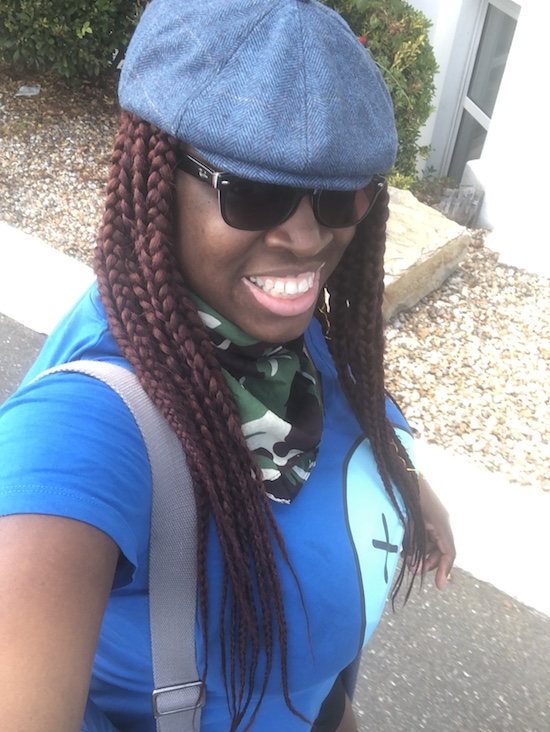
Julia Toppin
Julia Toppin: So, I just started as Senior Lecturer and Programme Leader of the BA Music Business Management course at the University of Hertfordshire and I love it because it is the perfect job that I never knew I wanted. I get to help young people who want to work in the music industries forge a role for themselves while hopefully avoiding some of the common pitfalls. I unofficially did this years ago in television so it feels very right. My research interests are the history of jungle, women in music, Black music and culture, and the concept of independence in the music industries.
My journey to academia was unusual. After careers in food retail management, television production, film journalism, and film marketing didn’t seem to fit. I became a secondary school teacher and taught mainly English for ten years. In 2013 my cousin DJ Grimeminister started his own drum & bass label and after helping him with a royalty statement I became the Label Manager. I went to the University of Westminster to do their MA in Music Business Management in the evening while I was teaching. I got into it so much that in the second year I taught English part time so I could read more because I wanted a first. Just before the end of the first year I was told that a probably make a good lecturer. When I graduated, I started to work at Westminster, then at Hertfordshire. Now I have this post. Boom.
I got into film journalism by calling up the then editor of Empire magazine and asking him for a chat. I got into television by dropping my bus pass outside Nick Ferrari’s house on the way to work. My path into the creative industries was a bit of an anomaly. One that allowed me access that probably would not have been granted in any other circumstance. That is why I helped as many people as I could get their foot in the door, consulted on marketing to Black audiences and advocated for better representation in film and television for years.
It is very sad that things have not really changed much in the years that I have been away from the creative industries. Black people are still eternally offered just mentorships and trainee schemes. Black women are still violently underrepresented. There is still too much talk and very little action. Too many gatekeepers. Too many enemies (of all ethnicities and genders) masquerading as friends and allies.
I honestly don’t think that will ever change.
What is exciting though is the networks, freedoms and entrepreneurial opportunities afforded by digitalisation. You can be an international artist or cultural producer without ever leaving your postcode. You can be local and global. I discovered this while writing my MA thesis on women in drum & bass which had to include a history of jungle. I uncovered all these amazing women that had never really been platformed the way that the men had. Digitalisation has offered them a chance to leap over the walls built by gatekeepers. We have built networks to inform, educate, promote, and advocate. There are still epic levels of structural inequality – however there is also a tremendous amount of pushback. That is very hopeful.
Yes, there definitely is a lot of pushback. If anything has kept me buoyed up lately, it’s seeing how many collectives are constantly springing up in music and media that are "identity"-led in the sense of being formed by and for Black women, LGBTQI people or whatever it might be, but are the diametric opposite of the right-wing stereotype of "identity politics" as meaning reactionary victim culture. That is, they are vivid demonstrations of identity as expression of lived lives and culture. What I’m most interested in is where all these things intersect with the values and traditions of underground/ rave/ soundsystem music culture. In Bass, Mids, Tops, one of the threads is how these values have evolved over five or so decades of Caribbean soundsystem culture fusing into distinctly British forms, and this evolution is continuing apace even in the time since I finished it.
I recently had a discussion with Sherelle for the No Bounds festival around the theme of community. Obviously as – in her words – a young, Black, quite masculine presenting, queer woman, who flies the flag for women and/or QPoC run organisations and expanding representation within music, she is the epitome of this kind of pushback that we’re talking about. But at the same time, she has built her platform on, not to put too fine a point on it, absolutely smashing it as a DJ and curator, and on mining really deep knowledge of UK and international rave and bass history. In one sense that’s beating the bros at their own game, but in another it’s representing the continued evolution of the long, deep tradition of rave/ soundsystem culture as personified too by the newer generation women I interviewed in the book, like Cooly G, Barely Legal and Shy One, who are each continually carving out their own roles and spaces.
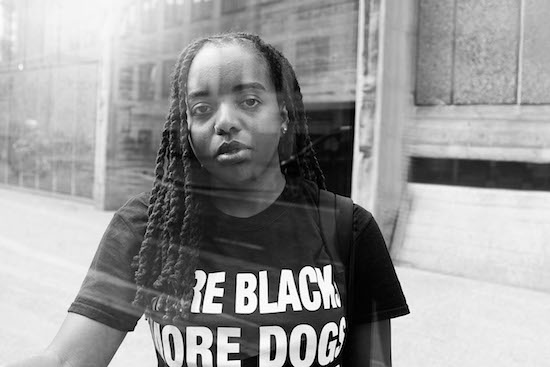
Shy One
I’ve always been fascinated how subcultures hand down ethics, values, ways of being, via accumulation of micro gestures, sounds, samples, handshakes, dance moves, ways of dressing and so on – and also by how difficult this is for us as writers or academics to codify. The big problems for me in knowing how to write about subculture are twofold: first how to represent something that by its nature is collectivist and based on hundreds of thousands of interactions in seething crowds repeated over long duration without being reductionist. And second, how to avoid being another Ivory Tower Explainer, translating these subcultural values into the language of the academy as if that provides validation. So I’d like to ask you first about your positive experiences of subculture and raving – because your work, for all its willingness to point out the structural prejudices within, say, jungle and drum & bass, radiates love for the music and experiences of that culture. And second, about how you would like to see commentary changing: how best can we write about these subcultures and preserve their histories without "talking down", or betraying, diluting or simply failing to accurately portray their fundamental values?
JT: I think that I was a natural born raver. When I was a kid and still in primary school, my aunt used to have these parties in her flat on the St George’s Estate near Elephant and Castle. The whole flat would be hollowed out. All the furniture from the front room and kitchen put into the bedrooms. The carpets were rolled up. Then people came with giant speakers. They would go from floor-to-ceiling and were just so loud. A deep, pulsating, vibrating, penetrating bass. You would dare yourself to get as close to the speaker as possible and see how much of it you could take. I remember the bass more than I remember the music. reggae, soul, lovers rock, rare groove.
Dancing was such an integral part of my family culture. We all danced. My aunts would show us moves and my cousin would love to show them off. I have always loved dancing. What else are you there for? So raving for me always meant some great bass and a run of songs that would not let me come off the dance floor. I went to acid raves, house raves, hip hop raves, dancehall shoobs. The Wag Club, the Milk Bar, unknown convoy locations, Bagleys, Heaven, All Nations, Moonlighting, Dougies, Shenolas, Atlantic Bar, Electric Ballroom, Fridge Bar, Camden Palais and so many other places whose names are lost to me. I started early. We used to go to School Disco, in our actual school uniforms!
I have so many positive memories from raving subculture from different genres. I always felt safe and I never took drugs (honestly) so you could not call it E euphoria. I would dance until I burnt myself out, then go and sleep on a toilet lid in the ladies until my crew (who’d sometimes indulged) came to get me to go home. They would bang on the door “Julia, lets go!” We never left anyone behind. My favourite songs are, selecting randomly, ‘Yeke Yeke’, ‘Everything Starts With An E’, ‘Big Fun’, ‘That’s The Way Love Is’, ‘It Takes Two’, ‘Static’, ‘Ain’t Nothing Going On But The Rent’, ‘Don’t Be Cruel’, ‘Rebel Without A Pause’, ‘Silly Games’, ‘Incredible’, ‘Sweet Love’, ‘Get Me Home’, ‘Fuck Tha Police’, ‘Big Momma Thing’, ‘Ain’t No N—-‘, ‘Reminisce’. I just loved bass and dancing.
So Jungle being a unique blend of all these great things plus an incredible bass line, always felt like home. I loved it so much. I went to Roast last year at E1, and DJ Ron transported me back in time with a Jungle version of ‘Touch Me, Tease Me’. I burnt myself out in under four hours. Instead of the toilet lid, I just said goodbye to my mates and got a cab home. For me drum & bass is like a detour from jungle: when the bass (even the tweaky jump up bass) is there I’m in. I don’t care if there are only five Black women in the room and three of them are bar staff, I’m dancing. I will jump up on stage to take pictures of Grimeminister, my label partner, when he is playing and be skanking when I don’t have to frame a shot. The rave is still a special place with a unique vibe that has not changed over time or across genres. That electricity is always crackling in the air.
With regard to the commentary, it is starting to change. Untold stories are starting to surface. You are hearing my story. I am telling other women’s stories. Your book, Bass, Mids, Tops tells so many wonderful stories: Storm, Nicolette, Sarah Lockhart, Barely Legal. I loved the way you did a little bio and then just let them talk. I made so many playlists from your book. I think we just need to have a balance of writers documenting these subcultures. I’m curious. When I documented Jungle from a female perspective and a Black woman’s perspective in particular, we saw a completely different view and an alternate history of events. I want music writing to be like the TV show, The Affair. I want all the perspectives. What was it like to rave to jungle and be a Black and gay, Asian and trans, white, straight and female? We just need to give some of these voices more chances to be heard.
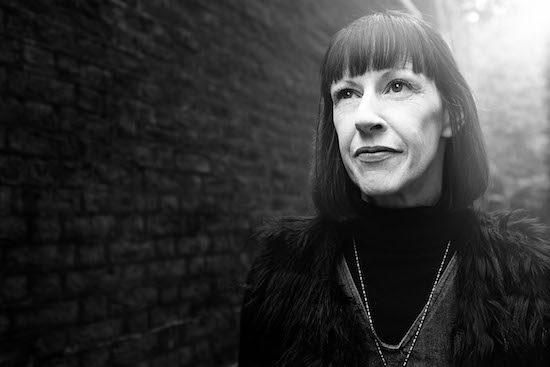
DJ Storm
Right! This sort of inclusion for me is not about box ticking, it’s just BETTER. We are all impoverished by monocultures, a party is less stimulating if you only meet people like yourself there, and that applies to the big party of culture a thousand times over. The more voices we hear with different perspectives, and even more importantly the more we’re able to see the intersections between those perspectives, the more the hidden shapes of that culture emerge.
As I wrote in the intro to the book, my route to bass and raving could hardly have been more different: as a middle class kid growing up in rural isolation, I was never going to know those house parties you describe – but my dad, a bit of an old hippie, worked in a Job Centre in Reading, and played cricket with his Asian and Caribbean workmates. On occasion his cricketing mates would come round to ours and sit on the lawn absolutely cranking up the reggae, so I got an understanding of the place bass played in it that I was never going to get just hearing UB40 on the radio or whatever.
Then came friends’ older siblings returning from acid house raves in ’88 with wild stories, and us cycling up the Downs to score weed and speed from new age traveller convoys, who were building their own soundystem culture, and getting A Guy Called Gerald and 4 Hero records pressed into my hands by the Spiral Tribe-looking shaven headed woman who worked in Massive Records in Oxford… Until eventually I reached jungle and drum & bass raves myself. From a very different place we would both end up finding the same tunes, and orbiting the same bassbins. Throughout this, a vital part of the thrill of discovery was this sense of converging paths: of meeting people that I’d otherwise never cross paths with, not as “other” but as part of the same culture.
So, much later, as I got more and more frustrated with the same old forums and same old arguments between mainly white men over delineation and categorisation of genres and scenes, and wondered if I was part of the problem and what I could even add beyond continuation of those old arguments, I finally started to realise that it was in the intersections between stories like yours, mine and other very different ones again that the real interest (for me anyway!) lay. Everyone’s story is exceptional – in the literal sense of being an exception – so instead of joining the scrabble to be authoritative, it’s far, far more interesting to let all those exceptions overlap and see what emerges.
On thinking like this, suddenly all the things I’d grappled with during peak raving years, in feeling part of a great seething torrent of stories and lives but not knowing how or even whether it was possible to capture this, and all the things that had fried my head at university about the death of the author, deferral of meaning, planes of consistency and so on, started to come together. Just selfishly, as a writer, this approach makes my life more fun and easier: just as, as a clubber, I’ve always felt infinitely happier on a diverse dancefloor, as a documenter of the culture I feel more comfortable if my voice is part of a diverse crowd of voices. I am always thrilled when I come across something like the Bass Culture research project that Mykaell Riley – who wrote the foreword of Bass, Mids, Tops – did at the University of Westminster, which accumulates hundreds of voices and stories. Looking for meaning makes more sense if there’s a sense of it constantly accumulating, instead of it being a quest for an authoritative take.
But of course there is the risk that all this is just so much noise – amplifying other voices could just be tokenism or the dreaded "virtue signalling" – as long as the real power in media and music resides in unaccountable boardrooms that are anything but representative of this country and its subcultures. Like I said in the preamble, the COVID crisis, and the wider economic situation, has thrown so much of this into relief. There seems to be more passion bubbling up than I can remember in many years regarding inequalities and injustices within the "culture industries", and all the brilliant and visible pushbacks, as you put it, but at the same time a huge accumulation of centralised power particularly with the tech giants. So the question is where do we go from here? We can all do practical things re representation, but what can we do about those power structures?
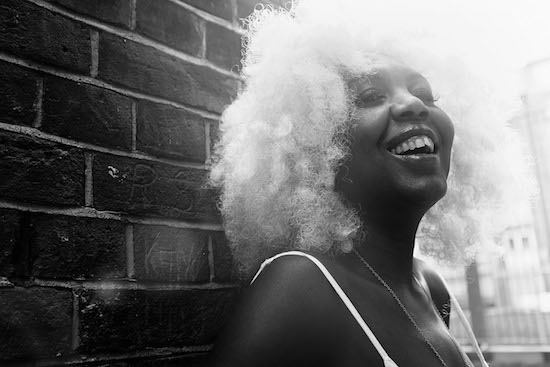
Nicolette
JT: Firstly, centring the voice of the subject will never get boring. It is so interesting to walk a mile in another person’s shoes. That is why we love the novel. Your book was like a series of insightful monologues – where, in each one, you learned more and more about sound system culture.
Secondly, What an epic question!
My answer is this. David beat Goliath. Wander beat the Colossi. Achilles died… The Roman empire fell and the British empire is a dead man walking. I have an aunt whose catchphrase is “time is the master”. We know that even the biggest empire can be reduced to words in books. I am not even sure if our Gen Zs could tell you about the Roman empire.
We need to educate them.
They need to learn how to let go of the need for status and approval from these big tech, music and media behemoths and invent their way to freedom. Those tech and media power structures need young innovative content creators, artists and musicians to feed the future of their business.
Years ago, when I was a consultant at the British Film Institute they conducted a survey that basically said that most young people had never heard of them despite their education remit. It scared them. What will they do when their core audience is dead in twenty five years? They all have that data. BBC. ITV. Channel 4. All of them. They are all scared. When Gen Z are in their 40s, they will not be paying a licence fee for TV they do not watch. We need to educate them so they stop being satisfied with scraps from the margins like The Rap Game and 1Xtra. They need to just say no to these crumbs and set up their own networks. I was saying this stuff 15+ years ago about digital film projection and getting laughed out of the room.
JME, Zeze Millz, Kelli-Leigh, GRM Daily, EQ50, No Signal, Versus, Black Ballad and many others are killing it on their own terms in the music industries. The tech works for them. They don’t work for the tech. Collectives like the Black Junglist Alliance, which I am a part of, are saying. “We don’t want to work with the labels that ignored us for years. We just need to do our own thing.” Many artists are hip to recording contracts. In a class recently, I talked my students through a 27-page exclusive recording contract. They were outraged. Maybe they would still sign… but I would like to think that they would negotiate a hell of a deal first.
They just need to realise their power.

Joe Muggs
Thank you. I think collectivisation is such an important thing. The ones you mentioned are broadly centred on Black music culture, and as I’ve mentioned there are lots of exciting queer music collectives happening too – but this is so much broader than that too: everything from community venues to festivals to street kitchens are doing great things, and hopefully each can learn from the others. It’s been interesting looking at the recent rounds of arts and music funding, a lot of people are angry at who got funded yet they didn’t apply themselves – and it feels like one of the most important possible things to do right now is to show people that there are some simple, practical steps they can take to access these pots of money, and more broadly open the otherwise locked doors.
Most basically, the first steps are: 1) pool resources, and 2) make sure you "speak the language". Put three small record labels or club brands together, make sure there’s a designer involved, hey presto you’re a Multimedia Collective and can apply for funding as such. Got a friend who’s a journalist, English teacher, civil servant, or just good with words? Bribe them to check over your applications and get the language crisp and institutional sounding. I’ve always said my DMs are open if grassroots organisations need help on this front, and I’ve helped a few out with applications already. I know plenty of other freelance writers doing similar.
I guess the notes of caution I’d sound are twofold. One is that the centralised power, particularly in tech is SO strong, that nobody should ever kid themselves that they’ll give up any of that without bitter fights. You have to keep an eagle eye on them at all times, and never lose sight of who owns what. It’s amazing, for example, that a media collective like Gal-Dem which is politically radical and self-starting, can have a brand as big and middle of the road as Sainsburys sponsor their food section for Black History Month, but what’s equally important is that when you look at the page, the brand doesn’t own your attention, they don’t dominate what you see and read. From experience of working with branded content, I’m sure that took a lot of back and forth to secure that, rather than logos plastered over everything. And the same goes with the ownership of the spaces you publish in. When I interviewed the team from The Old Police House in Gateshead, which is a super radical arts venue, about running their programme online in lockdown, they used a very telling phrase about knowing that when they use Facebook, Twitch, YouTube etc, that "it’s important to remember that we’re occupying someone else’s real estate".
The second is the danger of demagoguery. You’re 100% right that showing and explaining contracts to young musicians is one of the most vital things we can be doing, but there’s a kind of reverse hype that happens, personified by the absolute nonsense that Kanye West spoke about his contracts. Someone who gets up and screams that X corporation is at the heart of a conspiracy is all too often going to get more traction than someone who carefully lays out the structural nature of problems and the small step-by-step nature of the actions you need to take as a young musician or label to protect your rights and increase your autonomy. I hope we can learn to amplify the voices of real experience – say the great Naima Cochrane, who is not only one of my favourite music writers, but has years of experience is media law firms and record labels and set the record straight over the claims Kanye made with infinite patience – over the blowhards and scammers who offer easy targets and easy solutions.
All of that said, there is some room for optimism. In 2011 I wrote about the intersection between things like RBMA, Boiler Room, Sónar Festival, Rinse FM, and suggested that they might represent a realisation of Robert Fripp’s 1974 prediction that the future of the music industry lay with "small, independent, mobile, intelligent units". Now, one might have issues with any given one of those organisations (in some cases entirely rightly) but nine years on, I do think that 1) each of those entities has, crucially, created a huge archive of cultural and historical material that new musicians can access at will (and you can say that also of political collectives like Media Diversified, which may have had a relatively short active existence, but still leaves accumulated resources for others to access), and 2) all the kind of collectives that we’re talking about can look at how they operated, and learn a lot about what works and what must be jettisoned as we move on.
How about you? Are you an optimist?
JT: No, most definitely not.
I am neither an optimist, nor a pessimist. I see the world exactly as it is. You could call me a critical realist.
I think most Black women who do not benefit from the racial hierarchies imposed upon us by colourism have to be. All the organisations you named have significant issues when it comes the representation of Black women both in front of and behind the scenes. That has an effect on the type of sponsorship and funding they can acquire. The way issues are covered dictate who can attract corporate backing and government funding. It is why Media Diversified are no longer here. There are ways to navigate these often murky waters however those that pay the piper, call the tune.
As a critical realist I am excited by the cultural, technical, and entrepreneurial creativity of the young. The passion and dedication of those that are fully grown and truly understand how the world works. The commitment of those to trying to make the world a better place. The work continues. Working with young people is a gift. I took great pleasure in breaking down Kanye’s ill-advised rants and his hundred plus page contract. It is amazing teaching in an age where people like music writer Naima Cochrane, publishing consultant Shauni Cabellero, and music technology expert, Cherie Hu are happy to teach for free over social media for the greater good.
As for the archives, many collectives are doing some outstanding work. I am currently working on a massive celebration of jungle with a number of organisations for its 30th birthday in 2022. There is so much great stuff out there that it will be a job to curate the best of it for exhibition and touring. I am so excited about it.
2020 has been a tumultuous year, filled with anxiety and pain for many of us. Many of us though, have learned so much from this time, about ourselves, about others, and about how capitalism really works. I think some organisations and companies have gotten more reflective, more empathetic in their approach and that is definitely a good thing.
So maybe, I need to revise my statement.
I am a critical realist, with hope in her heart.

